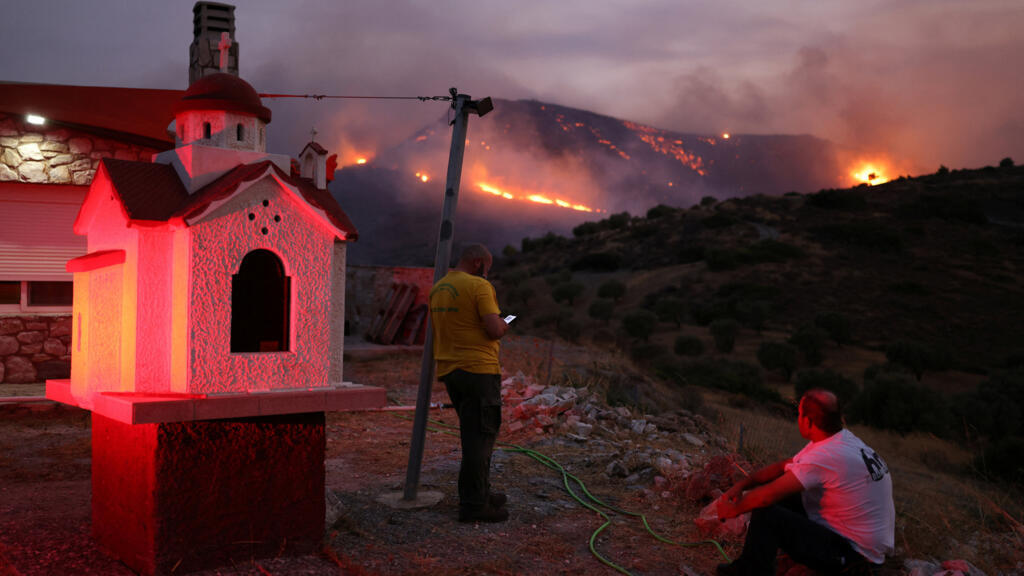Southern Europe Faces Devastating Wildfires Amid Scorching Temperatures
Southern Europe is currently enduring a wave of catastrophic wildfires that have erupted across multiple nations, including Greece, Spain, and France. These blazes are being exacerbated by extreme heat conditions, highlighting the growing challenges posed by climate change. The combination of persistent high temperatures and dry conditions has created a precarious environment, making it increasingly difficult for firefighting efforts to contain the flames.
In Greece, authorities are battling numerous wildfires that have threatened both civilian lives and natural landscapes. The Greek government has mobilized emergency response teams and has been enlisted help from neighboring countries to combat the infernos. As the fires spread, evacuations have been ordered in vulnerable areas to ensure the safety of residents. The Greek officials have reported that the risk of fire remains high as long as the temperatures stay elevated.
Spain has also been severely affected, with blazes consuming large swathes of forest in regions like Catalonia and Valencia. The Spanish government has declared several areas as disaster zones in response to the extensive damage caused by the fire. Firefighters are working tirelessly as they face not only the flames but also the oppressive heat that hampers their efforts. The summer of 2023 has been particularly challenging, with many locals now concerned about the long-term implications these wildfires will have on their communities and ecosystems.
Meanwhile, France has not been spared from the destructive wildfires either. The Gironde region, known for its vineyards and forests, has reported significant losses due to the wildfires. French authorities are mobilizing resources to combat the flames, and there have been efforts to assess the damage and provide support for those affected. The situation has drawn attention to the need for increased preparedness and response strategies in the face of such natural disasters.
Turkey has recorded its hottest July in 55 years, with temperatures peaking at a staggering 50.5°C. This unprecedented heat has heightened concerns over wildfire risks across the country, triggering measures to protect vulnerable areas and communities from potential fires. The soaring temperatures and dry spells serve as alarming indicators of changing climatic patterns, raising questions about the future resilience of these nations to such environmental threats.
The extreme weather conditions in Southern Europe underscore a looming crisis tied to climate change, prompting officials and environmentalists to call for urgent action. In light of the ongoing wildfires and forecasted heatwaves, discussions around policy changes and preventive measures are becoming more critical than ever. Local populations are being urged to remain vigilant and prepared as they navigate these challenging circumstances.
```











